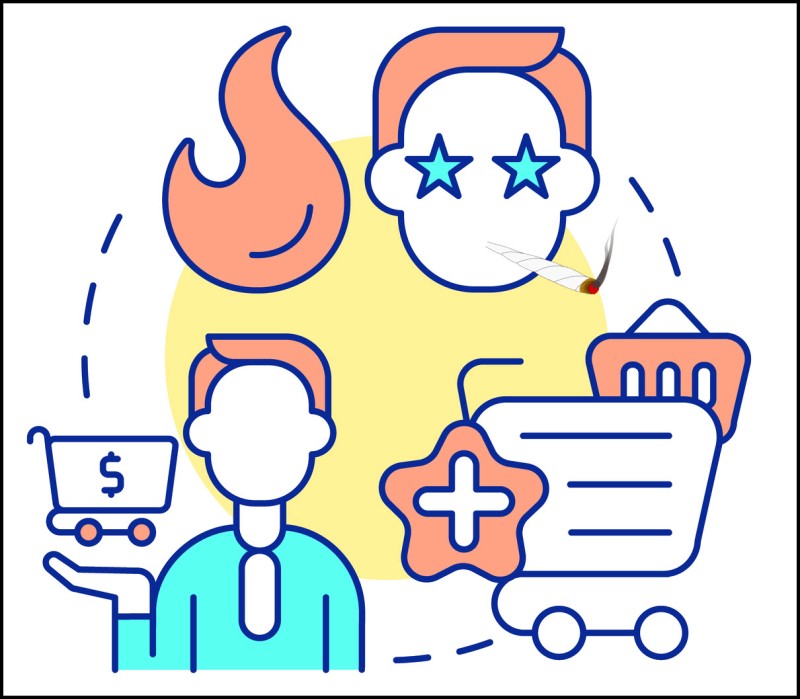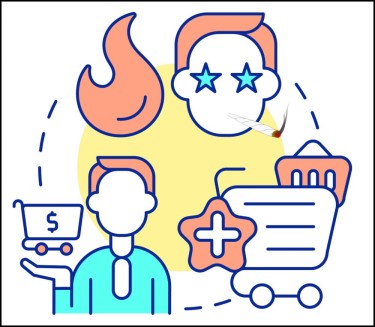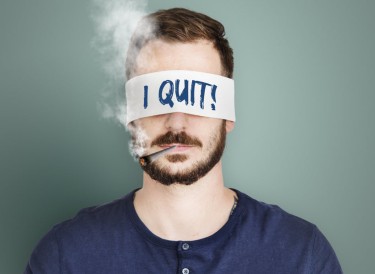Dana-Farber Cancer Institute recently concluded a study on the commitment of dispensary workers to educating cannabis users. According to the study, while there's an apparent commitment on the part of dispensary workers to educate cannabis users on its medical use, dispensaries usually place sales over education. In fact, the level and degree of on-the-job training at dispensaries are particularly unequal.
The study's authors affirmed that if a bigger, quantitative study substantiates the results, it will compel the medical community to ensure patients have authentic and dependable sources of education regarding medical cannabis. The researchers said that patients diagnosed with cancer often use cannabis for medical reasons, but oncology teams offer little to no education about cannabis use.
About The Study
The journal JCO Oncology Practice published the recent study online, based on factual interviews with 26 cannabis dispensary workers across 13 states in the United States. Researchers behind the study conducted phone interviews, discussing consumer experience and the managerial position at their respective dispensaries.
Ilana Braun, a physician at Dana-Farber and Brigham Women's Hospital and the study's first author, has opened up the right avenue to discuss clinicians' responsibilities in educating users on medical cannabis use. Dr Braun affirmed that clinicians could not delegate total duties to dispensaries when educating patients on medical cannabis use. She added that there's the need to quickly address the situation as results revealed the need for a wholesome dedication to their field of work. In addition, the study revealed a low and inconsistent level of on-the-job training for dispensary workers.
Dr Braun added that the dispensary workers interviewed are committed and passionate about cannabis education and are trying all they can to teach factual medical cannabis education. She explained that the workers work extra hard even during off hours, paying out of their pockets to learn a new course and pushing various boundaries.
But based on the research, it was discovered that dispensaries primarily hire more workers based on their sales skills and not profound knowledge of the therapeutic benefits of cannabis. Most workers agreed that workplace training on medical cannabis use was weak and unstandardized. However, Manan Nayak, PhD, a co-author of the study, claimed that patients prefer that information about medical cannabis from their oncology team.
Nayak added that while the patients' request is valid, the present system is designed such that both dispensary workers and oncologists work together to help educate patients. Now, the responsibility falls to the patient to know how to navigate the situation. Patients will have to find out where to go, try various products, get accurate information from dispensary workers, and maybe go back to their oncologist to dot the Is and cross the Ts. The responsibility is usually on the patient's part to communicate with dispensary workers. As things are, a quick solution must be found to bridge the gap between dispensary workers and oncologists so patients can have it easier.
The Key: Cannabis Education
Braun and some of her colleagues carried out a prior study which indicated that even though 80% of oncologists surveyed agreed that they discussed medical cannabis with patients, about half of them advised the use of cannabis clinically. In fact, less than 30% of oncologists considered themselves well-learned to advise on the issue.
According to the research, in the absence of factual medical cannabis education from an oncologist, dispensary workers become a substitute source of information on medical cannabis. After several interviews with cancer patients, Braun's team wrote in a 2020 article that almost all respondents received guidance on medical cannabis from non-medical sources, primarily dispensary staff.
The respondents learned various topics ranging from the properties of different cannabis strains to dose requirements. Brian concluded that if patients are referred to dispensaries, it is essential to know the kind of people who work there, how they are hired, their type of training, and what guidance they give patients.
Cannabis Dispensaries' Hiring Priorities
Many participants in client-facing and managerial positions talked about the requirement process involved in hiring dispensary workers. The primary quality many of the dispensaries look for is "customer service", which includes sales skills, retail/hospitality experience, as well as being excellent, empathic, and friendly. Dispensaries have different meanings attached to these qualities, which span from knowledge of medical benefits of cannabis, personal cannabis use, and experience in the cannabis industry.
Several participants pointed out that medical cannabis dispensaries emphasized experience in the cannabis industry and knowledge of the medical benefits of cannabis. Meanwhile, adult-use dispensaries considered personal cannabis use more. However, a manager was more inclined to hire applicants with little experience as he thought they had better sales skills. Client-facing personnel believed hiring qualifications to be non-existent. Meanwhile, several managers pointed out knowledge of cannabis therapeutics as very important.
Path to Dispensary Work
During interviews, more participants agreed that dispensary workers are passionate about cannabis as a medicine, including the dispensary work itself. In addition, dispensary workers have described their experience with cannabis as a great one, helping to fast-track their professional path.
A dozen participants have medically used cannabis, while just a few have a state licence. Even though oncologic use of cannabis was not particularly asked about, some personnel are motivated by the cancer-related seminal experience. Four personnel have experience using cannabis to manage pain; others have experience in using cannabis to manage mood disorders and inflammatory bowel disease.
Some individuals who used medical cannabis to treat pain and achieve remission in patients with opioid use disorder credited the botanical. For example, an individual used prescription opioids as a teenager and felt betrayed by doctors and pharmaceutical firms. This individual credited medical cannabis for saving them from the cycle of opioid medication. Approximately one-third of participants' positive experiences with cannabis influenced their professional path.
Conclusion
It will be difficult to question the attitude and motivation of dispensary workers in educating patients on medical cannabis. However, as Nayak suggested, there's a need to bridge the gap between dispensary workers and oncologists so patients can have it easier







